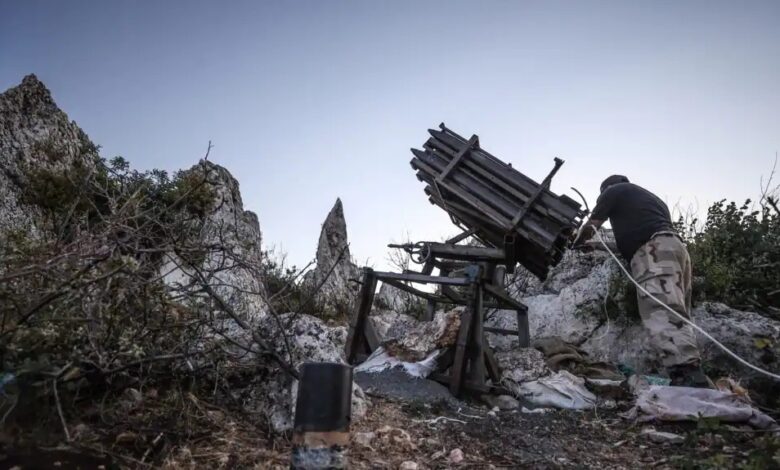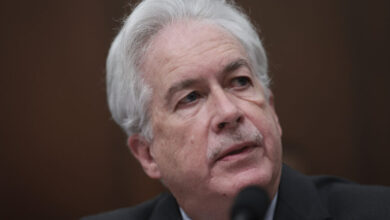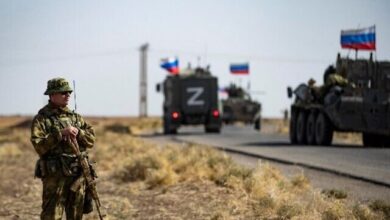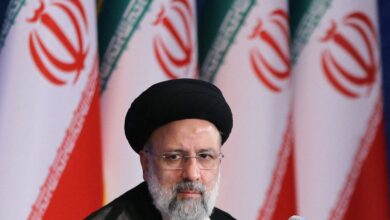Will Al-Zawahiri’s Killing Have Impact on Al-Qaida Affiliates in Syria?
The killing of al-Qaida leader Ayman al-Zawahiri in a U.S. strike in Afghanistan will likely have little impact on the terror group’s affiliates in war-torn Syria, analysts say.

Al-Zawahiri was killed over the weekend in a U.S. missile strike in Kabul in Afghanistan, U.S. President Joe Biden announced Monday.
In Syria, where al-Qaida has endorsed several militant groups during the country’s decadelong conflict, several leaders have reacted publicly to the death of al-Zawahiri.
Abu Abdullah al-Shami, a high-ranking leader of the Hayat Tahrir al-Sham (HTS) group, published a note in an online chat room on Telegram Tuesday, eulogizing al-Zawahiri’s death.
HTS, formerly known as al-Nusra Front, is a powerful Islamist group that controls most of Idlib province in northwest Syria. Designated as a terrorist organization by the U.S., the group was the main affiliate of al-Qaida in Syria until 2018 when it formally severed ties with the global terror group.
Despite cutting such ties, the Syrian militant group has maintained its al-Qaida-inspired ideology, experts say.
“That’s why the death of someone like al-Zawahiri could be seen as a symbolic blow to the jihadist movement in Syria,” Sadradeen Kinno, a Syrian researcher who studies Islamic militant groups in the country.
Other militant groups based in Idlib such as Huras al-Din and the Turkistan Islamic Party in Syria have pledged allegiance to al-Qaida.
“Zawahiri’s death will not have any direct impact on the way these groups operate in Syria,” Kinno told VOA. “Their organizational structures are largely independent from that of central al-Qaida.”
Other analysts say that al-Zawahiri was a symbol of an older generation of al-Qaida that wasn’t necessarily of significant relevance to today’s extremist groups in Syria and elsewhere.
Nicholas Heras, a Syria expert at the Newlines Institute for Strategy and Policy in Washington, says the younger generation of al-Qaida-inspired leaders have a different approach than that of the older generation within the terror group, including al-Zawahiri.
Their approach, Heras said, “focuses on building local support for a society based on ideals approved by al-Qaida.”
“In Syria, the younger generation has taken over and the focus for jihad there is to build a sustainable society based on Salafist principles,” he told VOA, adding that, “Zawahiri was already yesterday’s news in Syria when he died.”
Syria’s Idlib province is the last major stronghold controlled by forces opposed to the government of Syrian President Bashar al-Assad. Syrian forces and their Russian allies have been conducting operations in the region.
The United States also has occasionally carried out strikes in Idlib, targeting al-Qaida-linked leaders, including one in June that killed Abu Hamzah al-Yemeni, a senior commander of Huras al-Din.
In addition to these strikes, experts say rivalry among the various terror groups present in Idlib have forced some of them to keep a low profile.
Some leaders of smaller al-Qaida-affiliated groups, including Huras al-Din, have been arrested by the more powerful HTS and “many leading members are in hiding, so Huras al-Din is already marginalized, and I don’t think Zawahiri’s death will change that,” said Aymenn Jawad al-Tamimi, a Syria researcher at Swansea University in Britain.
It remains to be seen with al-Zawahiri’s successor will have any different impact on al-Qaida’s affiliates in Syria and elsewhere around the world, he said.
BY VOA





